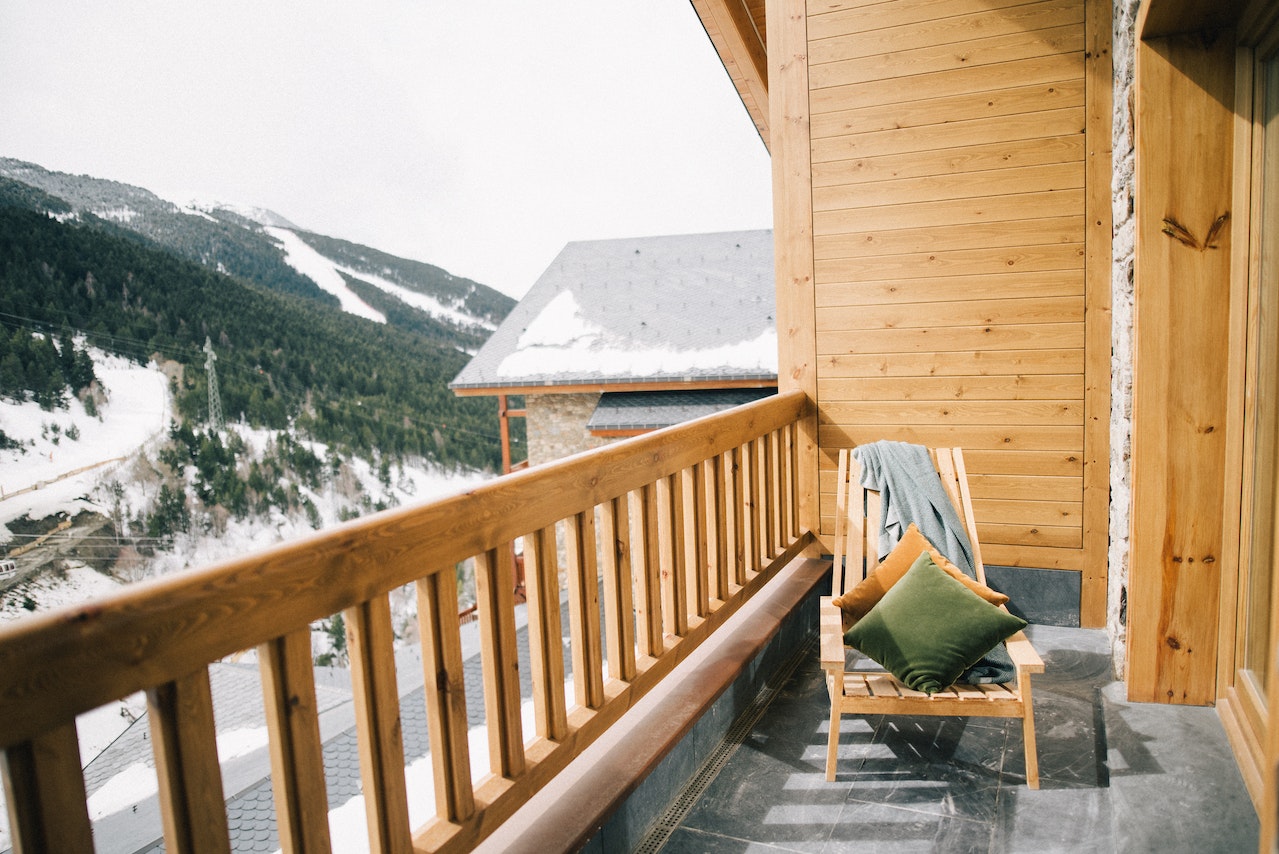Have you ever glanced at those Airbnb listings that seem to have perpetual bookings, with guests flowing in and out like clockwork? What’s their secret? What sets them apart? As an Airbnb host or property manager, you’re not just in the business of providing a space to sleep. Rather, you’re crafting a full-fledged experience. And to master this, there’s a certain formula—a secret sauce, if you will—that can transform your listing from a mere option to a top pick.
The world of short-term rentals is evolving, and so are guest expectations. But how can you consistently meet and surpass these expectations? More bookings don’t merely translate to an aesthetically pleasing space. It’s a blend of art and science: impeccable guest experiences, paired with the smart leveraging of data and technology. Are you ready to dive deep and uncover strategies to increase Airbnb bookings?
Dynamic Pricing Strategy: Navigating the Ebb and Flow
In the airline and hotel industries, dynamic pricing isn’t a new concept. Why not apply similar strategies to your Airbnb listing?
Seasonality and Demand:
Adjust your prices according to peak seasons, weekends, and local events. Got a property in New Orleans? Expect rates to surge during Mardi Gras. Similarly, a beach house can fetch higher prices during summer months.
Last-Minute Deals:
Got vacant slots? Consider offering discounted rates for last-minute bookings. These can entice spontaneous travelers and ensure your property isn’t empty.
Long-Term Stay Discounts:
Encourage longer bookings by offering discounts for weekly or monthly stays. Not only does this guarantee occupancy, but it also reduces the turnover work for you.
2. Unconventional Marketing: Stand Out from the Crowd
While Airbnb provides a vast platform, have you ever considered going off the beaten track with your marketing methods?

Local Collaborations:
Partner with local businesses. Think about offering guests a discount at a nearby cafe or tickets to a local theater. It enhances their experience and promotes community businesses.
Leverage Social Media:
Create an Instagram page or a Facebook group for your property. Share behind-the-scenes content, guest testimonials, and local events. Engage with your audience by running contests or polls.
Unique Selling Proposition (USP):
What makes your property unique? A rooftop garden? A historic backstory? Or perhaps a quirky interior design? Highlight this USP in all your marketing endeavors.
Advanced tips to increase bookings can be part of the ultimate host checklist.
3. Guest Experience and Aftercare: Beyond the Stay
The guest experience doesn’t end at check-out. The way you handle the post-stay phase can significantly influence repeat bookings.
Feedback Loop:
Actively seek feedback. Not only does it show guests you care, but it also provides invaluable insights for improvements.
Loyalty Programs:
Consider creating a loyalty or referral program. Offer discounts to returning guests or those who refer friends. It’s a small gesture that can lead to increased bookings.
Personal Touches:
Send post-stay thank you notes or holiday greetings. These small acts can leave lasting impressions, making guests more likely to return.
The Airbnb landscape is dynamic, requiring hosts to be adaptable and innovative. While it’s essential to get the basics right, it’s these advanced strategies that can set you apart in a crowded marketplace. Ready to take your Airbnb game to the next level?
Stay tuned as we dive into harnessing the power of technology and data analytics to further optimize your Airbnb presence in upcoming sections.
Analytics: Decoding Guest Behavior
In the era of Big Data, relying on gut feeling isn’t sufficient. Tapping into analytical tools can offer game-changing insights about your potential guests.
Demographic Insights:
Who typically books your property? Young couples? Business travelers? Families? Understanding your primary audience aids in tailoring your offerings to suit their preferences.
Booking Patterns:
Do you notice spikes in queries or bookings during certain times of the year? Identifying these patterns can aid in strategic pricing and promotion.
Guest Feedback Analysis:
Instead of merely skimming through reviews, dive deeper. Are there recurring suggestions or complaints? Use these insights to refine your offerings and address gaps.
5. Smart Home Integrations: Enhancing Guest Experience
The future is smart, and so should be your Airbnb property. By integrating smart technology, you can elevate the guest experience while also streamlining management.
Smart Locks:
These not only enhance security but also simplify the contactless check-in and check-out processes. No more coordinating key handovers; guests can access the property through unique codes.
Voice-Activated Assistants:
Devices like Alexa or Google Home can serve as in-house concierges. Guests can use them to ask about local recommendations, set alarms, or even control other smart devices in the property.
Thermostats and Lighting:
Offer guests the ability to customize their environment. Smart thermostats can ensure the space is cozy upon arrival, while customizable lighting can enhance their stay’s ambience.
6. Active Community Engagement: Creating Loyal Ambassadors
Your past guests can be your most potent marketing weapon, but only if you engage with them effectively.
Exclusive Newsletters:
Consider curating monthly or quarterly newsletters. Share updates about your property, local events, or even exclusive deals. Not only does it keep you on top of their mind, but it also provides added value.
Guest Alumni Groups:
Platforms like Facebook allow you to create private groups. Invite past guests to join, fostering a sense of community. Here, they can share their memories, updates, or even collaborate with future guests.
Offline Engagements:
Organizing annual or bi-annual get-togethers for past guests can seem ambitious but can have substantial returns. It fosters deeper connections and can turn past guests into loyal advocates.
7. Collaborative Partnerships: Expanding Your Reach
The world of Airbnb isn’t isolated. By collaborating with complementary services, you can enhance visibility and guest experience.
Travel Agencies and Planners:
While Airbnb is a powerhouse, many travelers still rely on traditional travel agencies. By forming partnerships, you can tap into a broader audience.
Experience Packages:
Partner with local tour operators or experience curators. Offer your guests exclusive packages, whether it’s a culinary tour, a historical walk, or adventure sports.
Co-hosting and Property Management Companies:
If managing your property becomes overwhelming, consider co-hosting or partnering with management firms. They can handle day-to-day operations, allowing you to focus on strategic growth.
In conclusion, while the aesthetics and basic amenities of your Airbnb property play a crucial role, it’s these advanced strategies and tools that can truly set you apart. The key lies in continuous innovation, adaptation, and a genuine commitment to enhancing the guest experience.
Crisis Management: Preparing for the Unpredictable
In an ever-changing world, the unforeseen can—and often does—occur. How you handle crises can significantly influence your brand’s perception and guest loyalty.
Contingency Plans:
Always have a backup plan. Whether it’s a sudden plumbing issue or external factors like a natural disaster, knowing your next steps is crucial. Collaborate with nearby hosts for potential guest relocations or have a reliable contractor on speed dial for quick fixes.
Transparent Communication:
In times of crisis, guests value honesty. Keep them informed about any issues and how you’re addressing them. This builds trust and can turn a potentially negative experience into a positive one.
Insurance and Protection:
Ensure you’re adequately covered with Airbnb’s Host Guarantee or consider external renter insurance tailored for short-term rentals. This protects you from potential damages or liabilities.
9. Sustainable Hosting: Crafting Eco-friendly Experiences
The modern traveler is becoming increasingly conscious of their ecological footprint. Integrating sustainable practices can not only cater to this demographic but also contribute positively to the environment.
Eco-friendly Amenities:
Opt for biodegradable toiletries, energy-saving appliances, or even provide reusable shopping bags for guests. Small changes can make a significant impact.
Promote Local:
Encourage guests to shop and dine locally. This not only reduces their carbon footprint but also supports the local community.
Green Certifications:
Several bodies offer certification for eco-friendly accommodations. By achieving and showcasing these, you signal to guests your commitment to sustainable travel.
10. Staying Updated: Navigating Airbnb’s Evolving Landscape
The world of Airbnb is dynamic. To remain successful, hosts must be proactive, adapting to both platform changes and broader travel industry shifts.
Regular Training:
Airbnb frequently offers webinars and training sessions for hosts. Participating can offer insights into upcoming changes and best practices.
Engage with the Community:
Join Airbnb host forums or local groups. These platforms can be treasure troves of information, with experienced hosts sharing their insights and experiences.
Monitor Travel Trends:
Understanding broader travel trends can aid in forecasting demand. Are staycations becoming popular? Is there a surge in solo travel? Adapting your offerings based on these trends can give you an edge.
Thriving as an Airbnb host demands more than just a comfortable bed and a functional kitchen. It’s about foresight, adaptability, and a deep understanding of both your guests and the industry. By proactively managing crises, committing to sustainability, and keeping your finger on the pulse of Airbnb’s ever-evolving world, you position yourself not just as a host, but as a pioneer in the realm of memorable, responsible, and forward-thinking travel experiences.
































